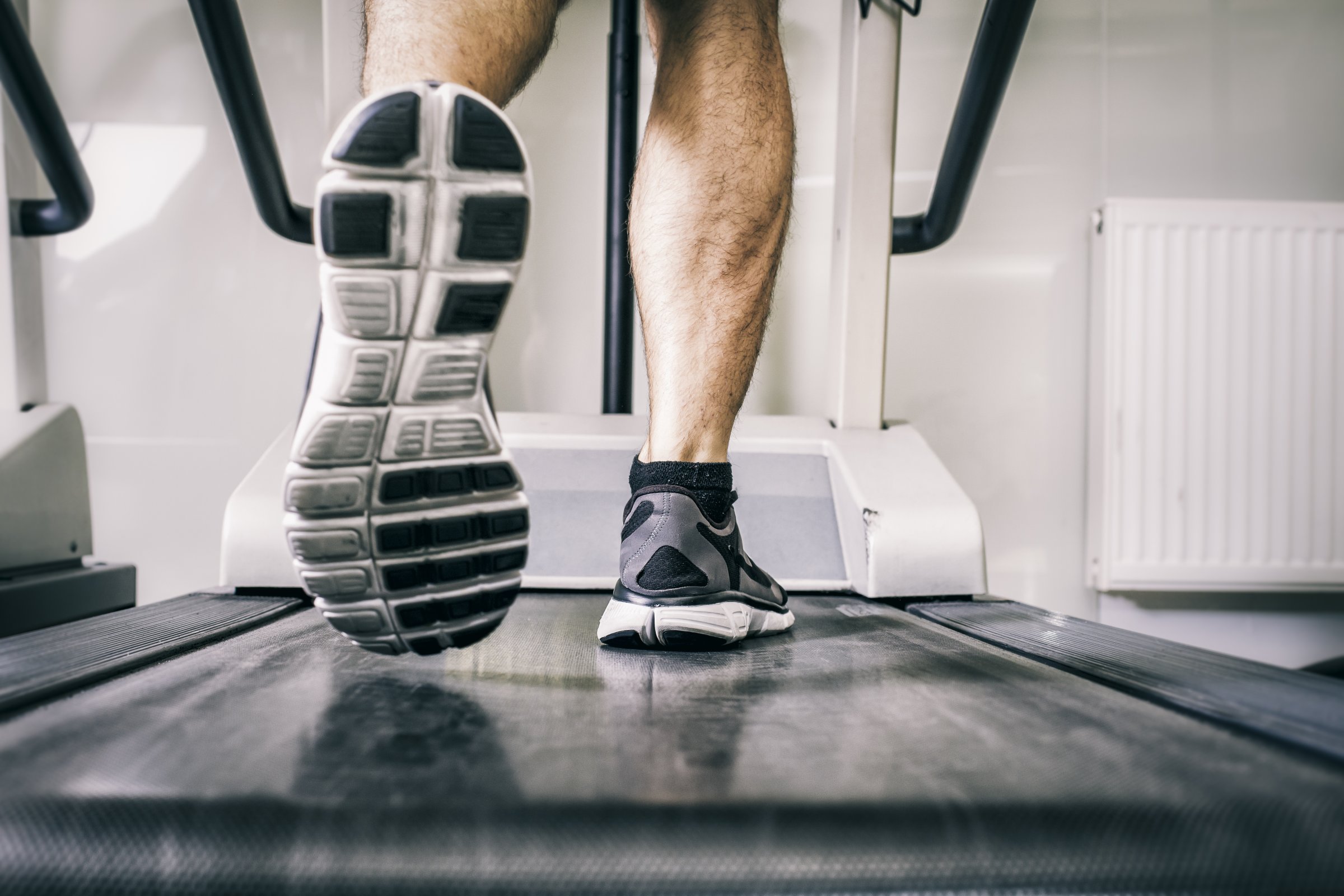
It’s no surprise that being physically fit helps protect against heart disease, but a person’s level of fitness might also have a profound effect on cancer outcomes long before a diagnosis. According to a new study in JAMA Oncology, men who were very fit in middle age were 32% less likely to die from cancer after being diagnosed after age 65 than men who weren’t fit in midlife.
“It’s pretty remarkable that a fitness estimate 10-15 years before your actual cancer diagnosis can predict how long you’re going to live after you develop cancer,” says Dr. Susan Lakoski, one of the study’s authors and assistant professor of medicine at the University of Vermont, Burlington.
In the study, which was part of the Cooper Center Longitudinal Study based out of the Cooper Clinic in Dallas, Texas, Lakoski and her colleagues looked at fitness data, measured by a treadmill test, and cancer data—specifically prostate, lung and colorectal cancer—from about 14,000 men for 6.5 years. Men who were very fit at age 50 had a 55% lower risk of lung cancer and a 44% reduced risk of colorectal cancer compared to men who weren’t fit at 50.
MORE: You Asked: Is Running On A Treadmill As Good As Running Outside?
(The researchers did not see this association with prostate cancer. Though more research is need to figure out why, they hypothesize that it’s because men who are very physically fit tend to have better health behaviors like going to the doctor, which makes them more likely to be diagnosed than someone who doesn’t get screened as frequently as something like prostate cancer, which is common but often does not require treatment.)
The protective benefits of exercise didn’t stop there. Of the men who eventually were diagnosed with lung, prostate and colorectal cancer by age 65 or older, being very fit in midlife was associated with a 32% reduced risk of cancer-related death and a 68% lower risk of cardiovascular death compared to men who had low fitness in midlife.
Here’s the best part: it doesn’t take a lot of exercise to have a big health impact, Lakoski found. “Just a small improvement in fitness made a difference in survival of those that developed cancer,” she says. Compared to men who could run 12-minute miles on the treadmill at age 50, men who ran slightly faster 11.5-minute miles had an additional 10% decrease in cancer death and an extra 25% decrease in cardiovascular death among those who developed cancer in the study.
Lakoski hopes that clinicians will start using fitness measurements in their practices to help make preventive exercise plans for their patients. “We talk about personalized medicine a lot now in medicine when we think about genetics, but we don’t think about it in terms of healthy behaviors,” she says. Objective fitness measures are great ways to develop personalized exercise training regimens, she says, with real implications for lifespan. “It is a very robust marker of survival,” she says, “and we’re not using it enough in practice.”
More Must-Reads from TIME
- Cybersecurity Experts Are Sounding the Alarm on DOGE
- Meet the 2025 Women of the Year
- The Harsh Truth About Disability Inclusion
- Why Do More Young Adults Have Cancer?
- Colman Domingo Leads With Radical Love
- How to Get Better at Doing Things Alone
- Michelle Zauner Stares Down the Darkness
Write to Mandy Oaklander at mandy.oaklander@time.com